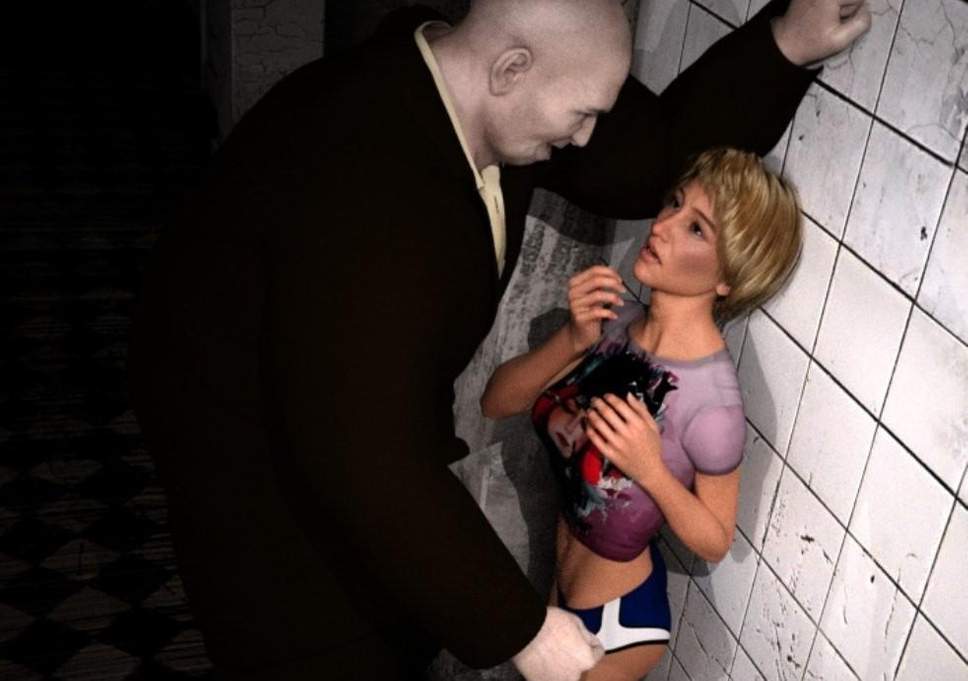In our modern society, normalisation to graphic content is becoming increasingly common. In the digital age we are constantly being exposed to images and videos that casually depict issues such as abuse, assault and rape. You only need to flick through Netflix to find shows such as ‘13 Reasons Why’, ‘You’ and ‘Abducted in Plain Sight’ that ever more desensitise viewers to themes of female exploitation. Never has this been more accurate than in the video gaming industry, with the overriding success of games such as ‘Grand Theft Auto’, it’s no wonder that gaming is repeatedly associated with male control and female submission.
Despite female representation in ‘Grand Theft Auto’ being less than favourable – it is nothing in comparison to the abuse and subjugation represented by visual novel game ‘Rape Day’, which was due to be released later in the year. The game puts players in the position of a white man during a zombie apocalypse, a standard narrative for the industry. That is, until you find out that the game’s main function is to actively encourage assault, non-consensual sex and necrophilia.
The fact that a game such as this was produced at all puts moves to reach equality in the gaming industry back thirty years – let alone that ‘Rape Day’ was pre-emptively advertised on the Steam Store. With 47 million users active on Steam every day, this game was given a disturbingly wide platform, available to players of all ages. The game developer, Desk Plant, defends the game claiming it’s a “dark comedy” and that “murder has been normalised in fiction, while rape has yet to be normalised.”
In an era of female empowerment, honest talks about assault, and the revelations of the #metoo movement, this doesn’t even come close to a justification. There is nothing comedic about the flippant endorsement of rape, an issue which affects “12.1% of adults aged 16 to 59…equivalent to an estimated 4 million victims” according to the Office of National Statistics. Regarding the comment comparing rape to murder: normalisation never has been, never is, and never will be okay.
While I can acknowledge that desensitisation to murder is prevalent in fiction, that does not mean it is acceptable, and it definitely does not mean that we should strive to normalise other areas of criminal and unethical injustice. There is a distinct line between awareness and desensitisation, which ‘Rape Day’ not only fails to acknowledge, but actively crosses. Arguments that video games are founded and marketed as an escape into fantasy do nothing to redeem the game: this is not a game about the freedom of imagination. This is a game about validifying and ratifying abuse.
Despite the fact that Steam has since withdrawn its endorsement of the game, it did so with a disturbing lack of condemnation for its content. In their explanation for removing ‘Rape Day’, the company that owns the Steam Store, Valve, made this statement:
“We respect developers’ desire to express themselves, and the purpose of Steam is to help developers find an audience, but this developer has chosen content matter and a way of representing it that makes it very difficult for us to help them do that.”
The lack of vilification in this statement is striking, and for a game as disconcerting as ‘Rape Day’, removing the content is simply not enough. Respecting this creator’s “desire to express themselves” is in this situation is equivalent to endorsing rape-culture and calls into question the ethicality of Steam’s security policies. The removal of the game feels as though it was primarily done to quiet the avalanche of protest the game received, not because Steam as a platform explicitly disagrees with the content.
The whole situation reveals a dark and unsettling truth: although steps are being made in the right direction, we are still a long way away from the eradication of rape culture.
Beth Griffiths

